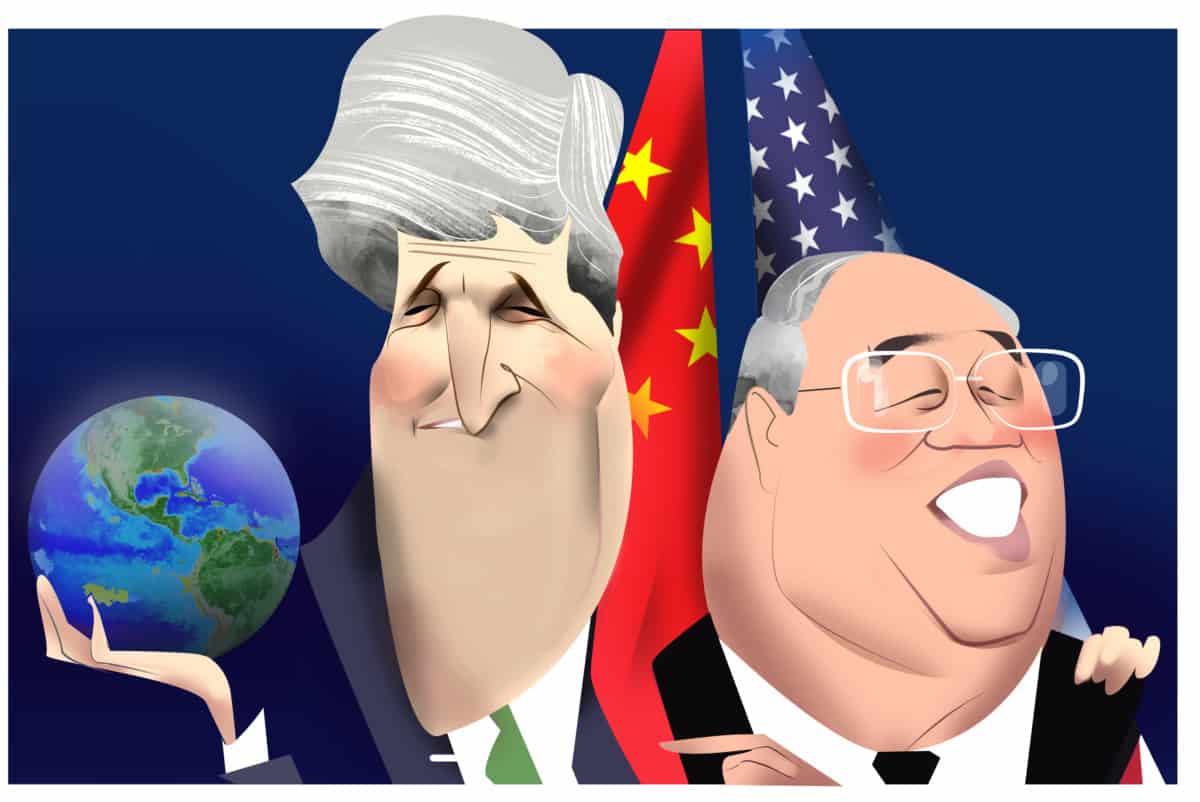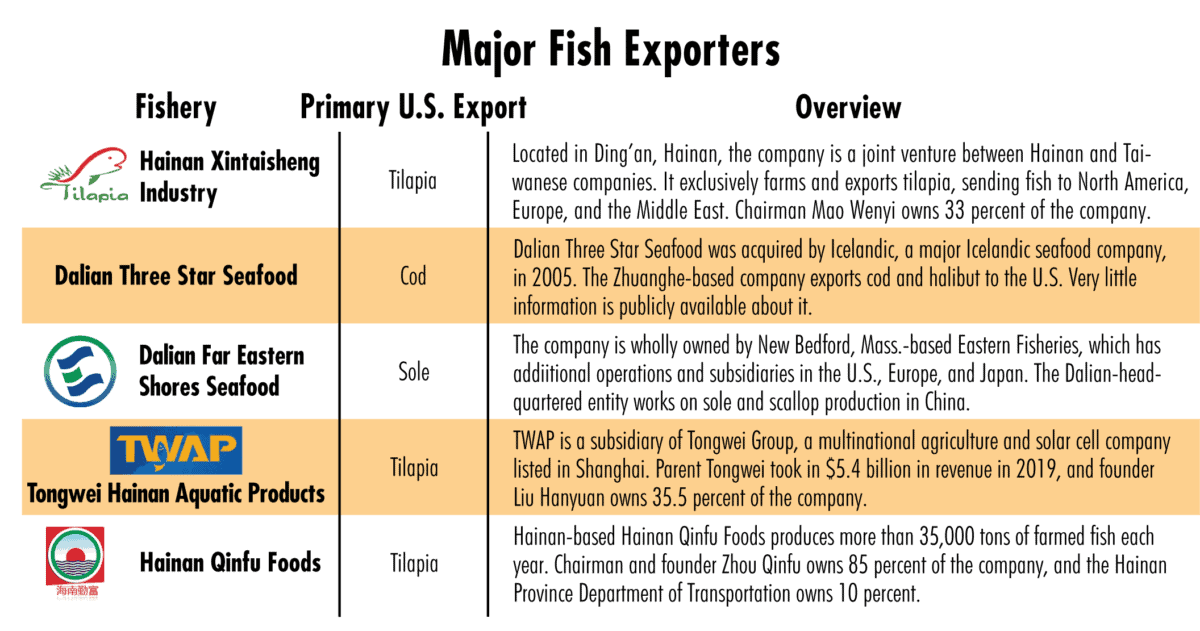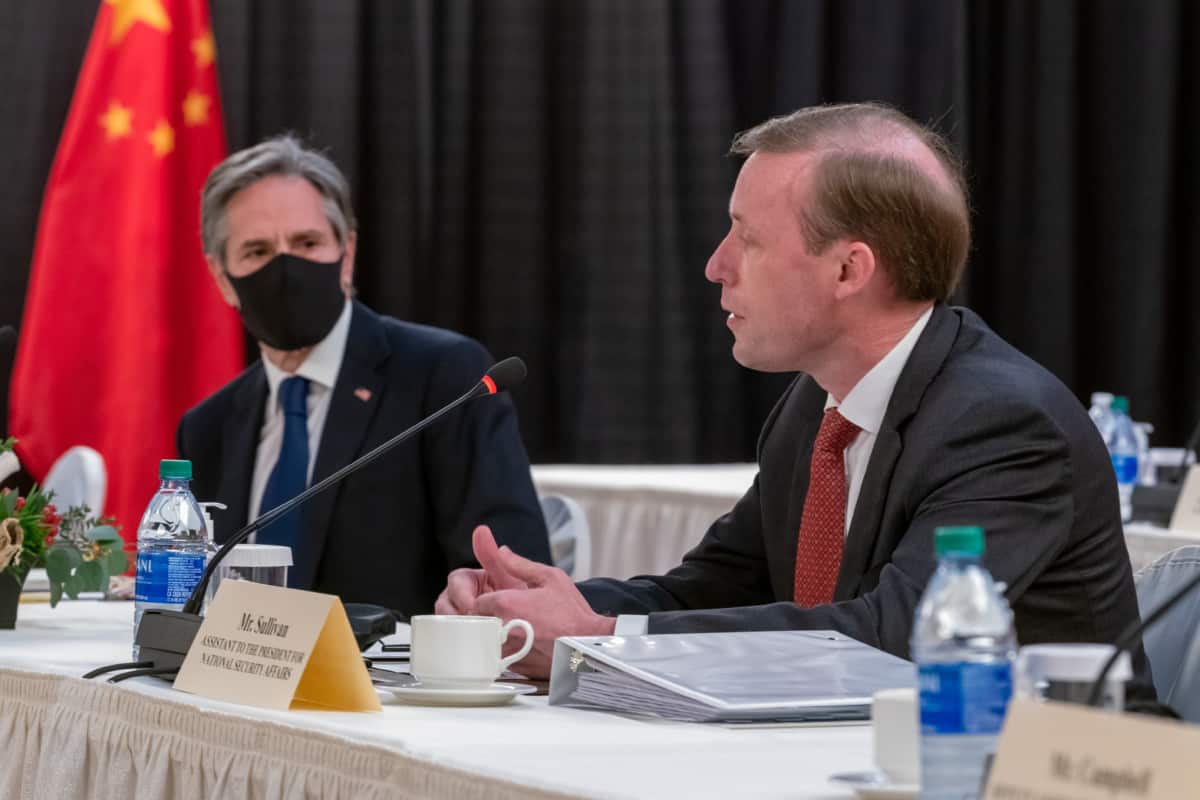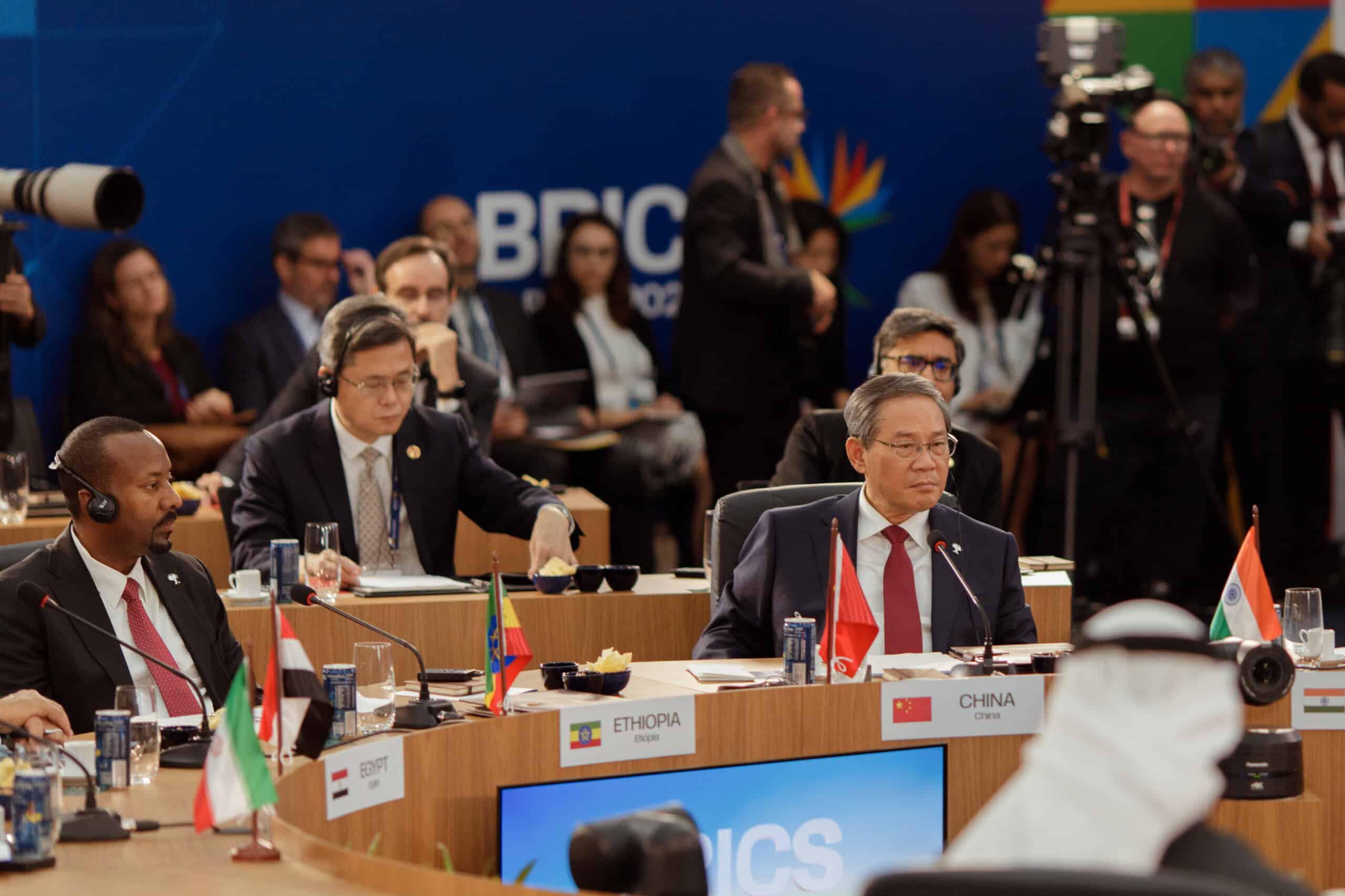Good evening. Although there’s plenty of disagreement about the U.S.-China relationship these days, there is one thing that just about everyone agrees on: the necessity of the two countries to cooperate on climate change. But what does that cooperation look like? Our cover story this week explores the tricky balance, including the two men whose job it is to walk the fine line. Elsewhere, we have a fascinating Q&A with Maria Repnikova; an examination of Chinese companies’ new interest in SPACs; a look at China’s seafood industry; and an op-ed from Stephen Roach on how the Biden administration is boxed in on China. If you’re not already a paid subscriber to The Wire, please sign up here.
Want this emailed directly to your inbox? Sign up to receive our free newsletter.

The Climate Crusaders
When President Joe Biden tapped John Kerry as his special envoy for climate and China named Xie Zhenhua to be his counterpart, observers on both sides of the Pacific let out a sigh of relief. The two men were seen as the best hope for the two countries to cooperate on climate change amid rapidly deteriorating relations on a host of other topics. But while many analysts acknowledge the need for cooperation between the world’s two biggest carbon emitters, less clear is what, exactly, that would even look like. And as Eli Binder and Katrina Northrop report for this week’s cover story, while cooperation is the buzzword of the moment, the U.S.-China competition might be just as useful.

The Big Picture: China’s Gone Fishing
Everywhere you look in the world of seafood, there’s China. It produces more than a third of the world’s seafood each year. It’s been the world’s largest exporter of seafood since 2002. And it’s the largest consumer of seafood. This week, The Wire looks at China’s seafood production, its biggest export markets, and the Chinese companies transporting seafood to the United States.
A Q&A With Maria Repnikova

Maria Repnikova is a media scholar and author of the acclaimed book Media Politics in China: Improvising Power Under Authoritarianism. In this week’s interview with Eyck Freymann, she talks about how China tells its story, both domestically and abroad, including the unique ways the CCP builds consent and Xi Jinping’s public persona.
Maria Repnikova
Illustration by Kate Copeland

Credit: Christopher Berry, Creative Commons
The SPAC Craze Reaches China
Wall Street’s latest craze for SPACs has reached a new frontier: China. These blank check companies — which raise money, go public, and merge with a private company typically within two years — have raised more money so far this year than all of last year. And Chinese firms are getting in on the action. SPACs, or ‘special purpose acquisition companies,’ offer Chinese companies what they want: a quick and easy way to get foreign capital and a foreign listing. But as Katrina Northrop reports, some worry that their already speculative structure is riskier in the China context.

Credit: State Department/Ron Przysucha
Boxed in on China
The Biden administration needs to rethink its combative approach towards China, Stephen Roach, a former chairman of Morgan Stanley Asia, argues in this week’s op-ed. On economics and trade, it has been boxed in by the “phase one” trade deal negotiated by the “former guys,” as Biden refers to the previous administration. But balance-of-payments deficits, not the so-called China problem, are the macroeconomic source of America’s overall trade deficit. The Biden administration should shift its focus and abandon the unworkable bilateral framework of the phase one deal and the tariffs that support it.
Subscribe today for unlimited access, starting at only $19 a month.



